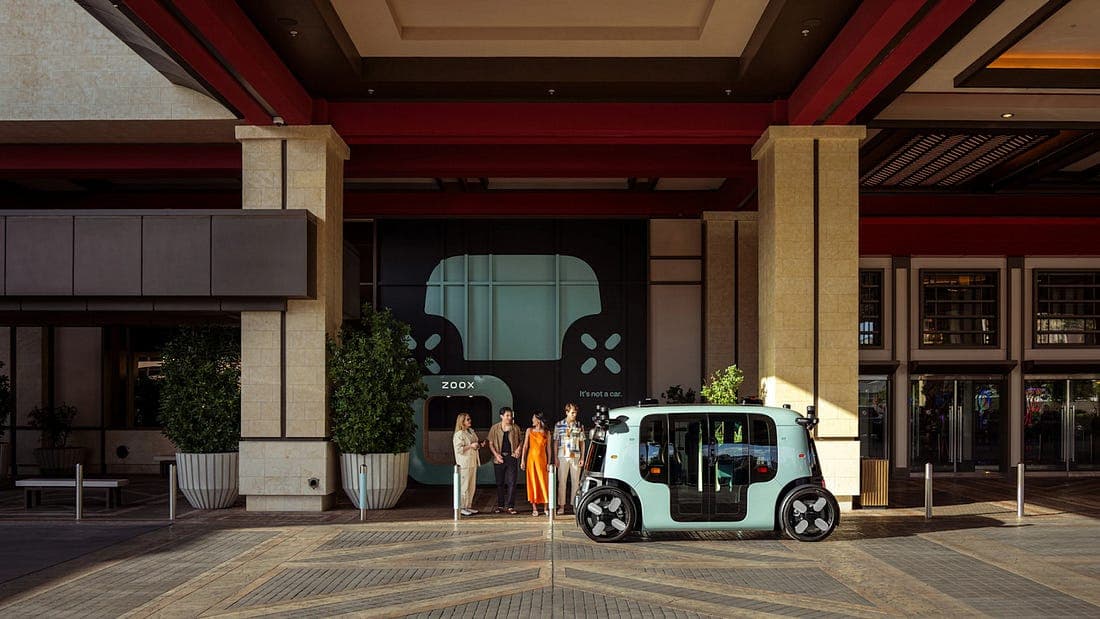Welcome to Ride AI, your weekly digest at the intersection of technology and transportation.
Last week, we had Ali Kashani, co-founder of Serve Robotics, on the podcast. Serve is the leading provider of googly-eyed delivery robots, and we spoke with Ali about stats, scaling, and sidewalk tech. Give it a listen.
If you have any questions, please be in touch. If you are interested in sponsoring a newsletter, podcast, webinar, or conference, reach out and we’ll send you the details.
Now, Here’s What’s Happening
Bloomberg reports Tesla is targeting June 12 for the launch of its robotaxi service in Austin—though that date could change. No official announcement has been made, and no invitations have gone out, but Elon Musk recently claimed that Tesla is testing self-driving Model Ys on public streets “a month ahead of schedule,” with no incidents.
He also teased the first-ever autonomous vehicle delivery from factory to customer coming this month, though no additional details were shared.
So far, all we know—courtesy of a Morgan Stanley research note from analyst Adam Jonas—is that the pilot could involve 10–20 Model Ys, be heavily teleoperated, and invite-only. Tesla has not confirmed any of this.
Image Credit: Zoox
Autonomous vehicle companies are moving into hospitality. Both Waymo and Zoox announced hotel partnerships on the same day. Waymo is teaming up with The Intercontinental San Francisco, while Zoox is partnering with Resorts World Las Vegas, including a dedicated pickup area and an on-site “experiential activation.”
Waymo’s hotel details are still vague. Zoox, on the other hand, is clearly aiming for visibility and customer interaction on the Strip.
In a callback to last year’s infamous honking incident in San Francisco, Santa Monica residents are protesting a Waymo depot—not for honks, but for backup noises.
Waymo’s Jaguar I-Pace fleet emits government-mandated electric vehicle backup sounds—a shrill tone and the now-notorious “boop boop.” While the depot’s noise levels are technically within city limits, neighbors have begun blocking depot access using cones and parked cars. Waymo has called in law enforcement to deal with the disruptions, but that hasn’t stopped the guerrilla boop blockers.
Waymo says they have been collaborating with the city to try to minimize the noise by limiting work hours of staff in the lot, using quieter vacuums for cleaning, and planting bamboo for sound dampening. However, the root cause of the issue is still the government-mandated backup sounds, which the city has reached out to state regulators about.
Editor’s note: When Waymo used the lot under my window, the backup sounds eventually became white noise—annoying, then oddly soothing. These Santa Monica residents seem to feel... differently.
California—home to 40% of the U.S.’s vegetable output and 70% of its fruit and nut production—still bans the use of autonomous farm equipment on private land.
Why? Because of labor laws written nearly 50 years ago. Meanwhile, other states are already putting autonomous tractors to work.
Despite permitting vehicles from Waymo, Zoox, and Tesla on public roads, California has issued zero permits for autonomous ag-tech on farms. Only one company, Monarch Tractor, holds a limited “experimental variance” set to expire next year.
A state advisory committee formed in 2022 has met only three times and produced no recommendations. Some lawmakers are exploring legislative fixes, but no bill has yet been introduced. Farmers using autonomous equipment have not been fined—but they’re stuck in legal limbo for now.
In Other News…
- It’s Waymo’s World. We’re All Just Riding in It.
- Also: Waymo surpasses Lyft in San Francisco gross bookings
- Autonomous Vehicle Acceleration Act of 2025 introduced in Senate
- Oops: Waymo takes a swim in Austin
Alright, that’s it from me… until next week!
